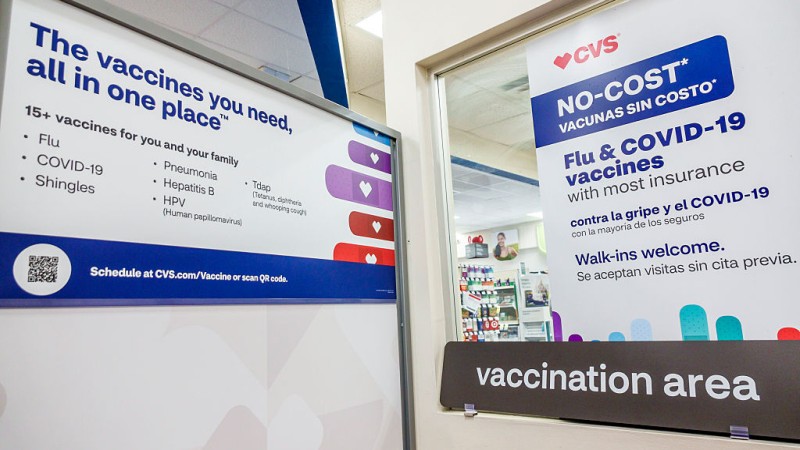 Image Credit: Alex Wong / Staff / Getty Images
Image Credit: Alex Wong / Staff / Getty Images A first-of-its-kind lawsuit challenging ultraprocessed-food manufacturers for deliberately making their products as unhealthy and as addictive as possible has failed, despite its obvious merits. The manufacturers and industry groups are hailing the victory, but there will obviously be more lawsuits, and if they’re better crafted, some will win—and that will open the floodgates. Processed-food companies will be in the same position tobacco companies were in. Huge payouts will follow, in the billions of dollars, and potentially significant changes that will alter the food landscape in America for the better. In the meantime, regulators can and should do more.
Nineteen-year-old Bryce Martinez filed the suit against Kraft, Mondelez and Coca Cola, alleging that his habitual consumption of their shitty food gave him type 2 diabetes and non-alcoholic fatty liver disease.
As Reuters reports, “the lawsuit was seen as a test case because it accused the companies of using the same strategies that the tobacco industry once did in knowingly addicting Americans to popular food product despite their health risks.”
US District Judge Mia Perez granted the companies’ motion to dismiss the case, on the basis that Martinez failed to specify which products were directly responsible for his ill health. The lawsuit listed nearly 100 different brands, but no specific foods.
However, Judge Perez was sympathetic to Martinez’s case, and acknowledged that ultraprocessed food is unhealthy and obviously playing a serious role in the chronic-disease crisis that’s destroying America’s health and blighting the lives of its children.
There can be little real doubt that ultraprocessed food is a uniquely unhealthy kind of food, even if there are problems with the popular NOVA classification system that’s widely used to distinguish ultraprocessed foods from other types.
Just today, I reported on a new study which showed that even short-term consumption of ultraprocessed foods can lead to worrying weight gain, metabolic and even hormonal changes and reduced fertility.
A group of around 40 men ate either a whole-food or ultraprocessed diet for just three weeks. The ultraprocessed group derived almost 80% of their daily calories from junk, a proportion that’s “normal” for many Americans.
Despite consuming the same number of calories, the men who ate the ultraprocessed diet put on significantly more weight and also suffered a raft of other negative health effects, including a reduction in levels of follicle-stimulating hormone, which drives sperm production, and a reduction in sperm motility, a key measure of how well sperm move and their ability to fertilise an egg.
The study clearly shows, as others have done, that the degree of processing—including the addition of additives like texturisers, preservatives, antifungals and colorings, all of which have been shown, individually, to have negative health effects—is what makes ultraprocessed food so dangerous. It’s not simply a question of overeating or energy balance. The food itself is the problem.
This has been known for decades. It was clear even with the very earliest kinds of processed food introduced to Western diets around the turn of the 20th century. The pioneering dentist-cum-anthropologist Weston A. Price, in his magnificent book Nutrition and Physical Degeneration (1939), showed that the abandonment of traditional whole-food diets in favour of diets rich in refined grains, canned goods and other new factory-made foods was causing dramatic changes to health.
Price contrasted the declining health of Western populations with the “perfect health” of small-scale societies around the world, including some in Europe, so long as they continued to eat their ancestral diets and especially nutrient-dense animal foods like raw dairy, organ meats, blood, shellfish and seafood, eggs, and fat products like butter. Wherever in the world Western factory foods went, they were followed by the same conditions Price noticed in his dental patients back home in Cleveland, including structural changes to the face—literal physical degeneration.
I’ve called processed food “weaponized food” because that’s exactly what it is. Processed-food is deliberately engineered to make consumers eat as much of it as possible, as quickly as possible. Manufacturers like Kraft, Mondelez and Coca Cola employ teams of food scientists whose job is to make their products “hyperpalatable,” a scientific euphemism for “addictive,” “unputdownable,” or similar phrases. Or as Pringles has it: “Once you pop, you just can’t stop.”
By manipulating the complex neurobiology of taste and appetite—the right balance of sweetness, saltiness, crunch, etc.—these food scientists ensure their products hit the desired “bliss point.”
One study showed that ultraprocessed foods are typically eaten 30% faster than other types of food. We practically inhale them, and that’s the aim. The quicker you eat, the more you eat.
The more product you buy.
Recent research, publicized in The Washington Post and other news outlets, has shown how tobacco companies in the 1980s moved into processed food and used the same tricks they’d learnt to hook people on cigarettes to hook them on their new food products.
Research has shown, for example, that foods produced by tobacco-owned brands were 29% more likely to be high in fat and sodium and 80% more likely to be high in carbohydrates and sodium than brands that weren’t owned by tobacco brands.
Tobacco companies leveraged all the tricks and tactics they’d learned, like “brand stretching” and targeted marketing, directed especially at children—think cartoon-character mascots and vibrant colors—to do exactly what they did with their tobacco products: to capture consumers, the earlier the better.
Although many tobacco brands divested from food brands by the early 2000s, the playbook has remained the same, and their legacy has been to cement the place of ultraprocessed foods as a staple of American diets.
Robert F. Kennedy Jr. has rightly made ultraprocessed food one of the main targets of his “Make America Healthy Again” crusade, with exposure to harmful chemicals, overprescription of pharmaceuticals and the insane childhood vaccination schedule. But so far, the main focus has been to make these foods less, well, shitty, without addressing the fundamental problems at the heart of ultraprocessed food.
The changes we’ve seen so far, like the removal of harmful red dyes, have been concessions from the manufacturers themselves. They’ve been totally voluntary, attempts to show willingness, and, arguably, to prevent harder regulatory and legislative measures that would force manufacturers to do things that would cost them market share and bucketloads of cash.
Clearly, if lawsuits against processed-food manufacturers are to succeed, they will have to demonstrate the specific links Bryce Martinez and his lawyers failed to show. But RFK Jr. has all the evidence he needs to pressure companies like Kraft, Mondelez and Coca Cola to do much better, and to encourage Americans to break their self-destructive eating habits for good.
What’s stopping him?


